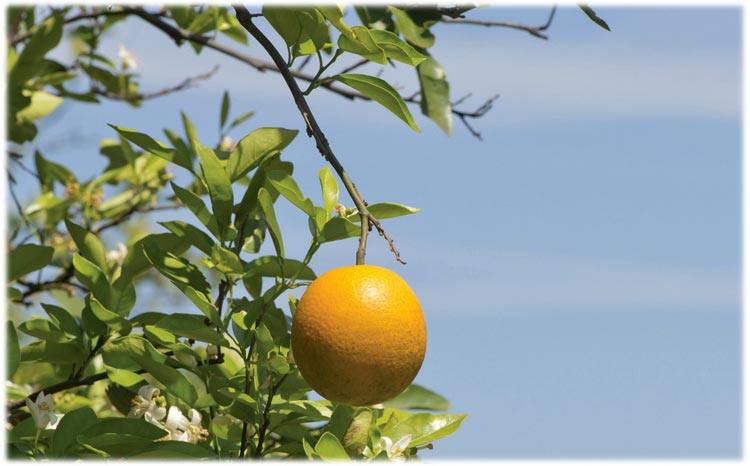U.S. senators sponsor legislation for the citrus industry
AS FLORIDA CITRUS growers continue to battle citrus greening, U.S. Sen. Marco Rubio (R-FL) has joined U.S. Sen. Bill Nelson (D-FL), the original sponsor, in championing the Emergency Citrus Disease Response Act. That act will allow growers to immediately expense the cost of planting new citrus instead of the standard 14-year depreciation period under the current IRS rules, according to Florida Citrus Mutual (FCM), Florida’s largest citrus grower organization.
The incentive is for growers to plant more trees and bolster the troubled Florida citrus industry. Tweaking the IRS code is designed to increase slumping production and be available for 10 years.
Florida growers are now battling citrus greening, or HLB, a bacterial disease vectored by the Asian citrus psyllid. It attacks the vascular system of a tree and can kill it within two years. Citrus greening is endemic to Florida and has reduced production more than 50 percent over the past decade.
“By some estimates, our industry needs to put more than 20 million trees in the ground over the next 10 years to support existing infrastructure and get our production back to where it was before HLB,” says Michael W. Sparks, executive VP/CEO of Florida Citrus Mutual.
“The Peace River Packing Company in Fort Meade continues to replant and is committed to the citrus industry,” says Larry Black, citrus grower and immediate past president of FCM. “We have seen good results, so we continue to plant more groves. There is more risk now than ever due to greening. That uncertainty to growers makes for slower replanting, as they are afraid they won’t recoup the money.
“As we have new management strategies each year, we know a lot more now than we did a few years ago about bringing new trees into production,” Black says. “It is riskier than ever, but with the new bacteria and nutritional therapies to bring into production, we can tackle citrus greening. There are no solutions yet, but we have strategies to keep the trees productive.”
This is just one incentive. The processing plants like Florida’s Natural and Coca-Cola also have provided incentives to get their growers to replant.
“New plantings in September 2015 included 12,343 acres,” Black observes. “So far, the gross loss has been 26,094 acres of fruit trees. Growers are planting 250 to 300 trees per acre, which is double from what growers were planting pre-greening 10 to 15 years ago. The first crop of newly planted trees is year three in planting.”
“It is a difficult period in the industry right now,” Black concludes, “but encouraged with legislation and study, the industry will rebound.”
CREDIT
article by BRENDA EGGERT BRADER

